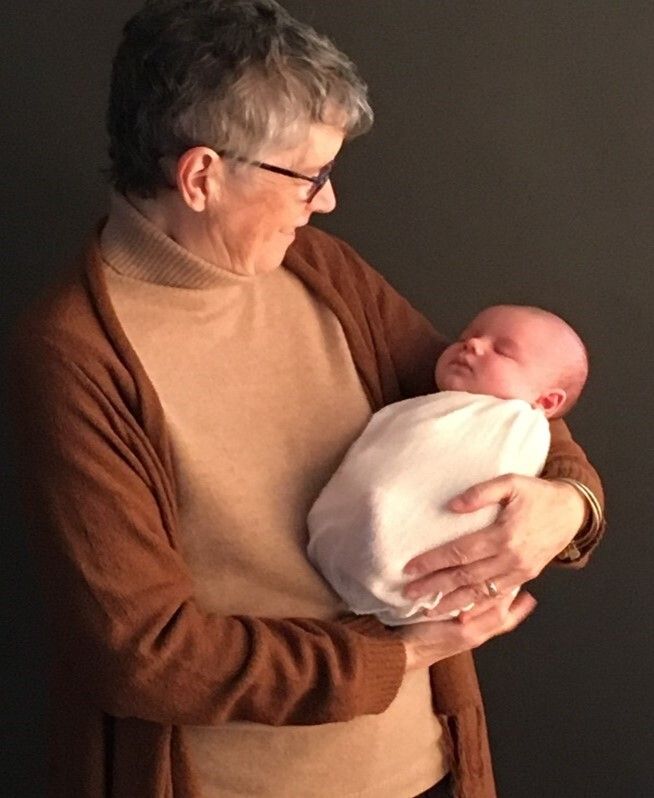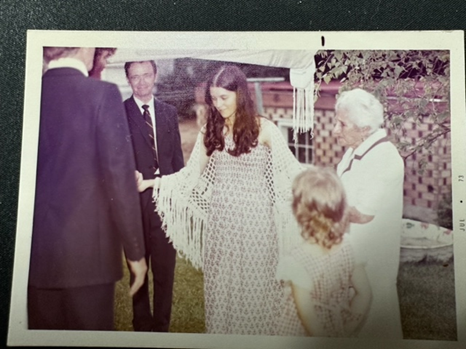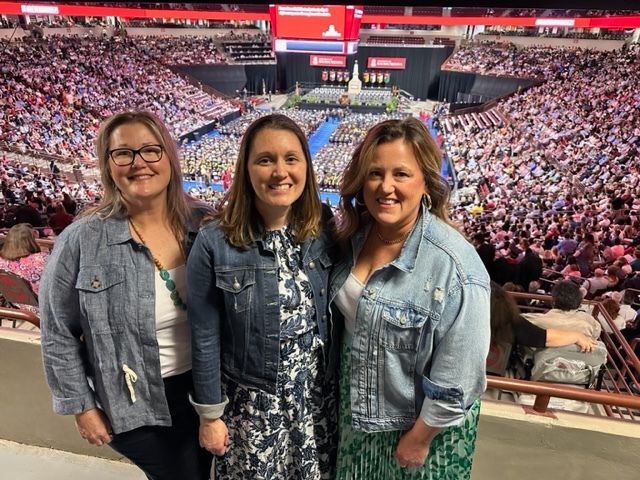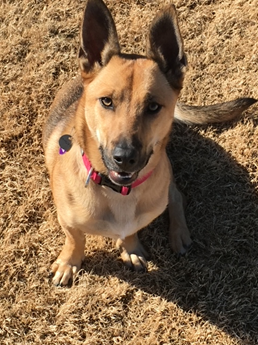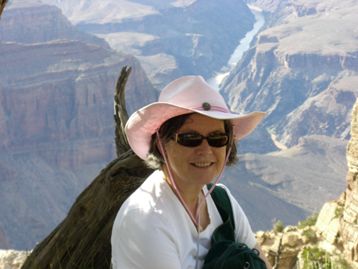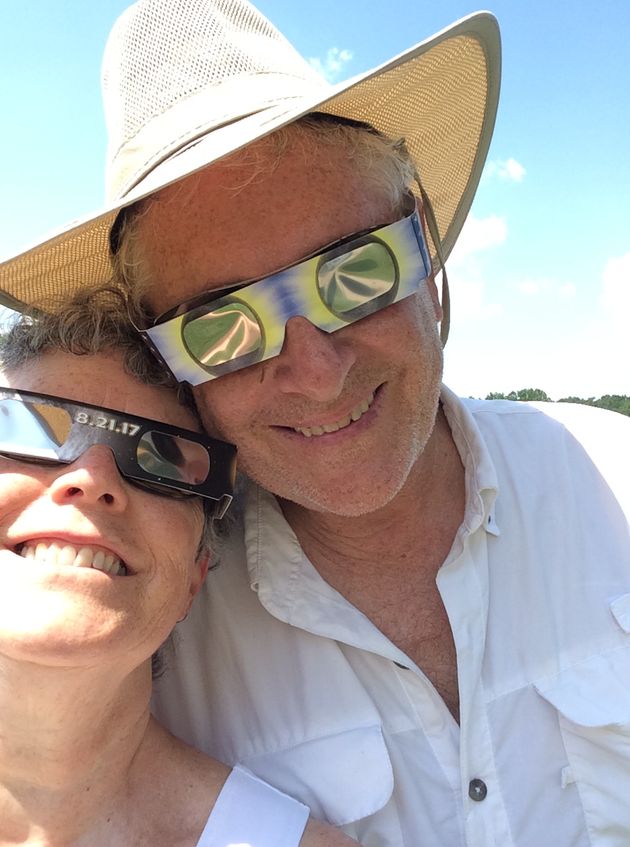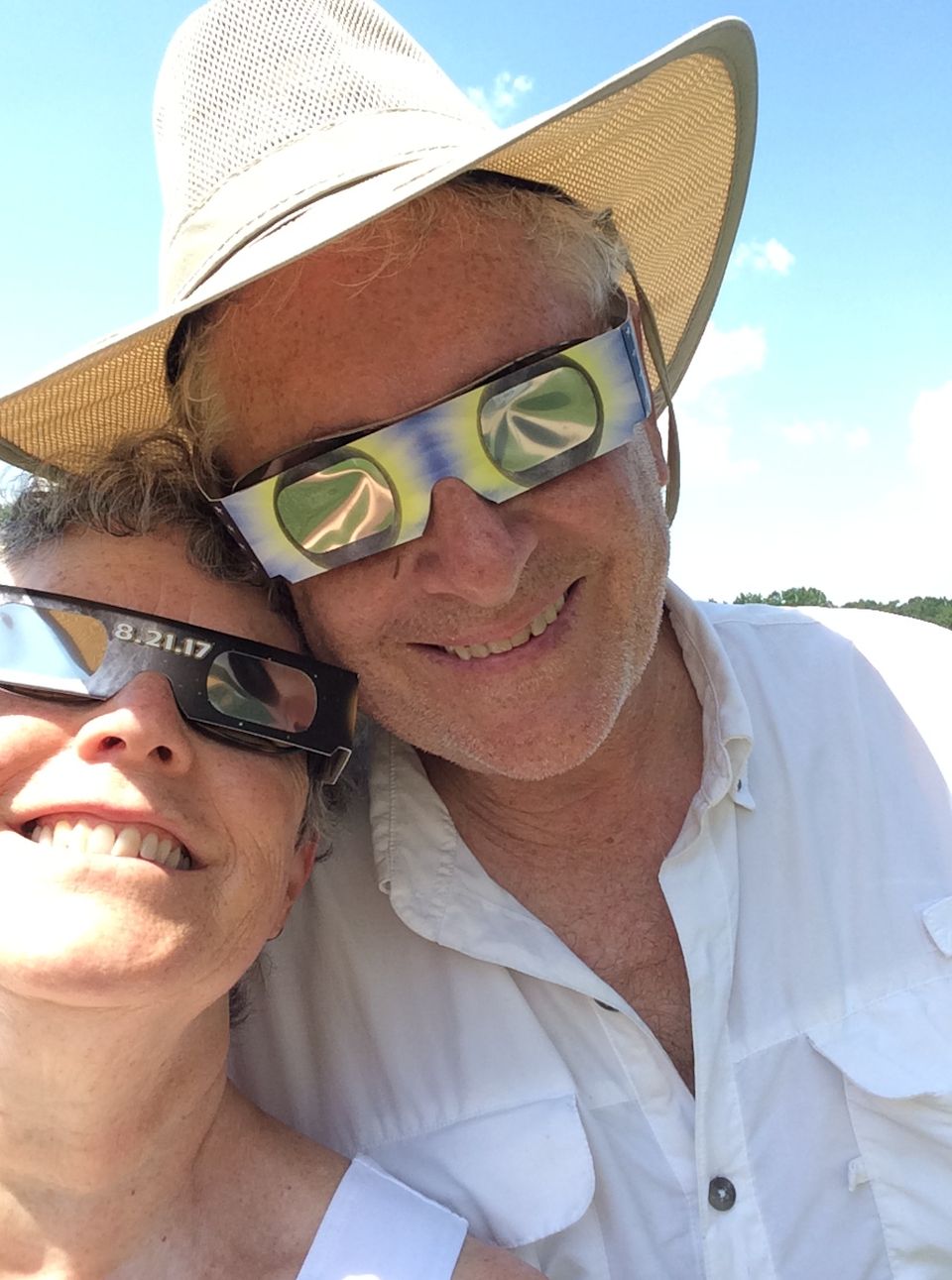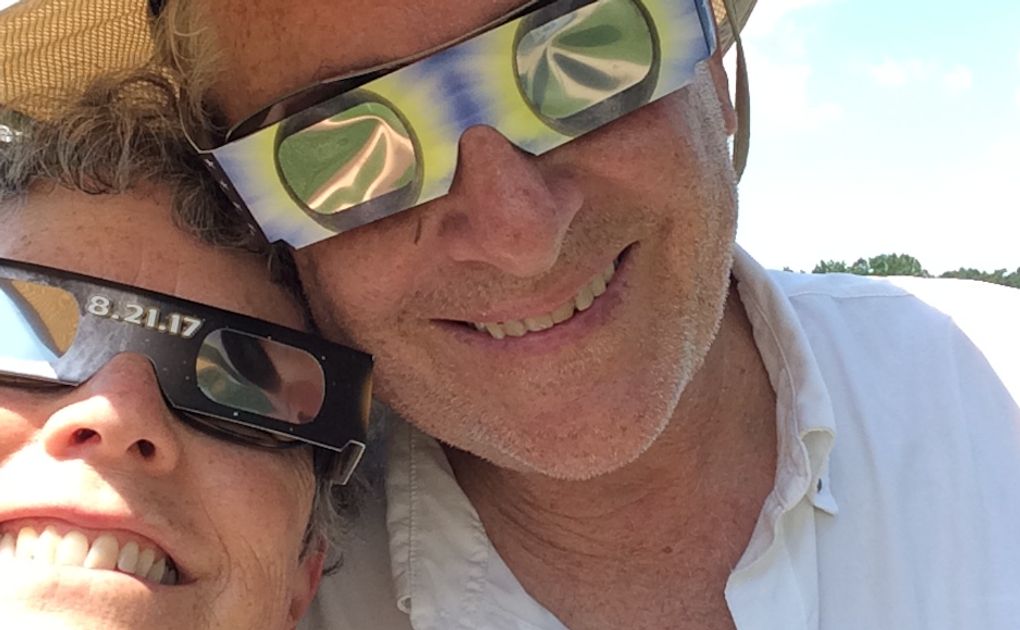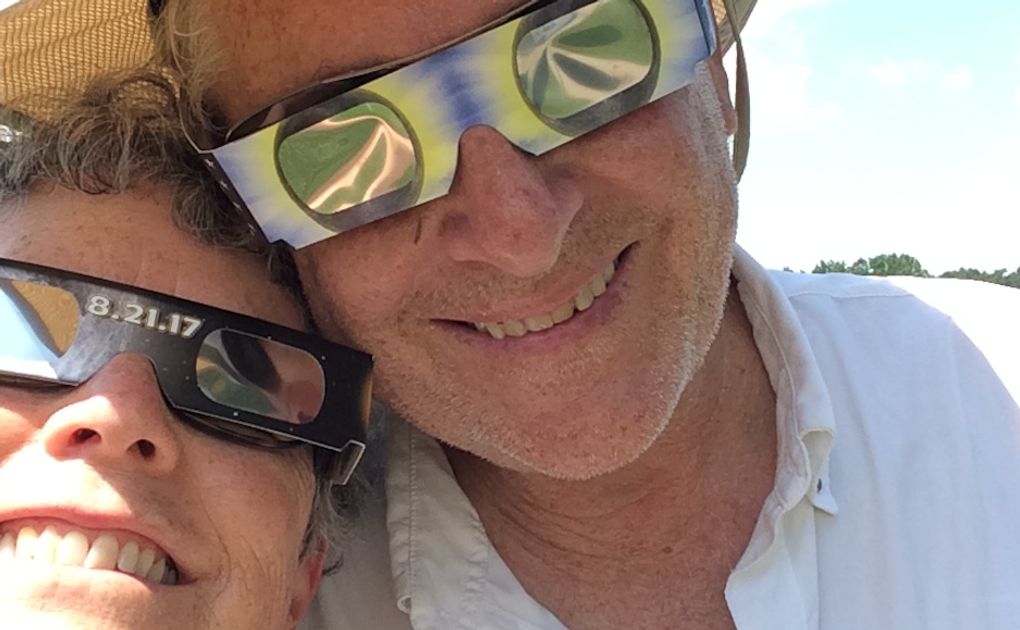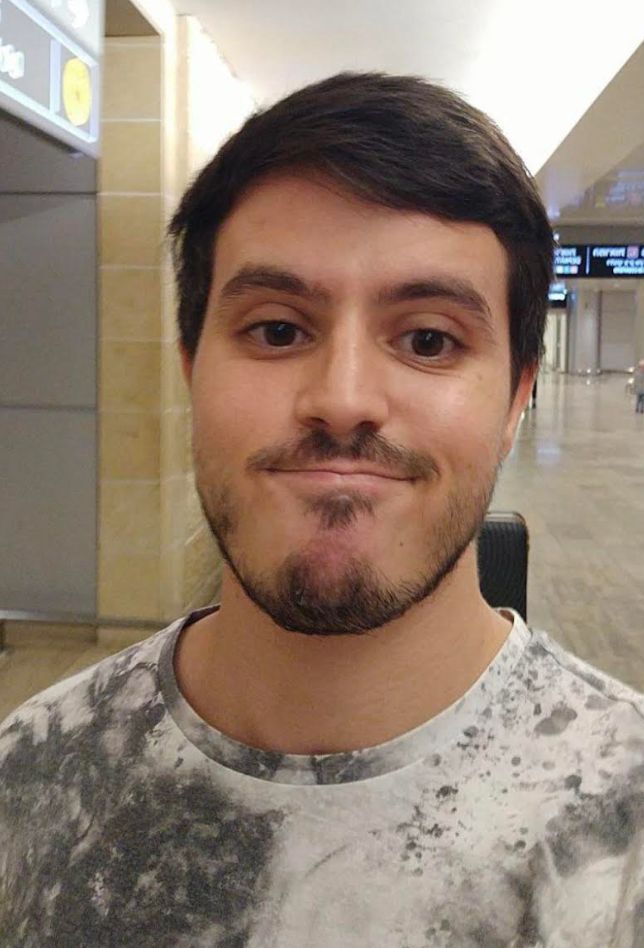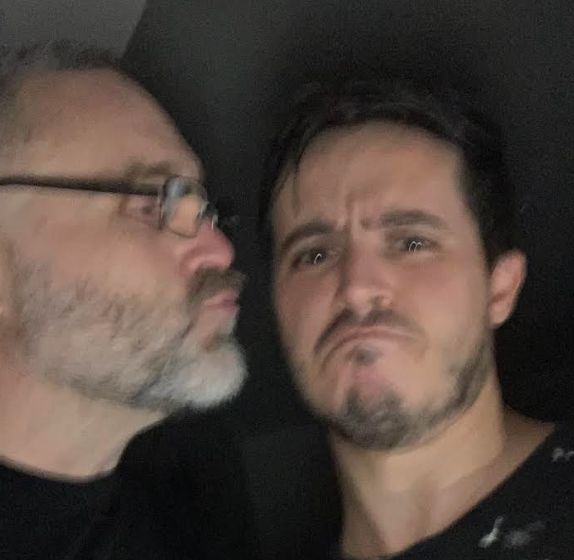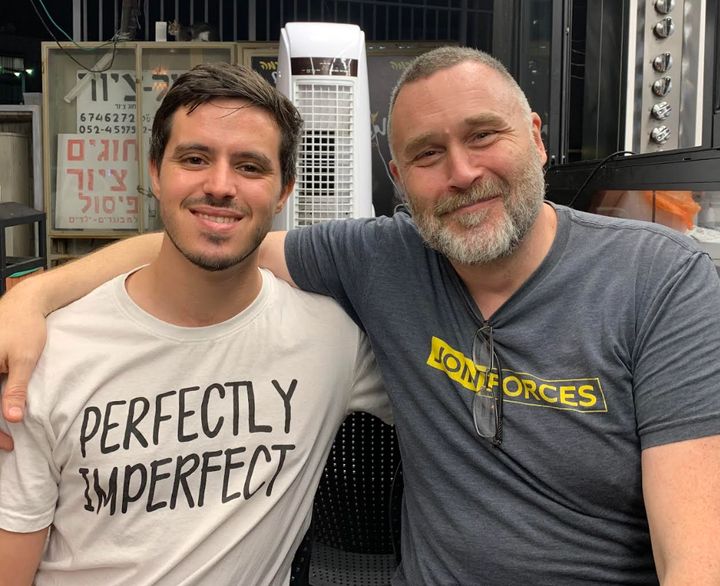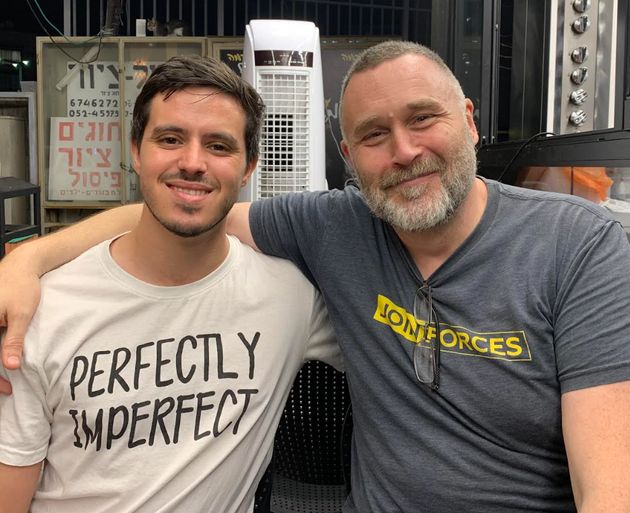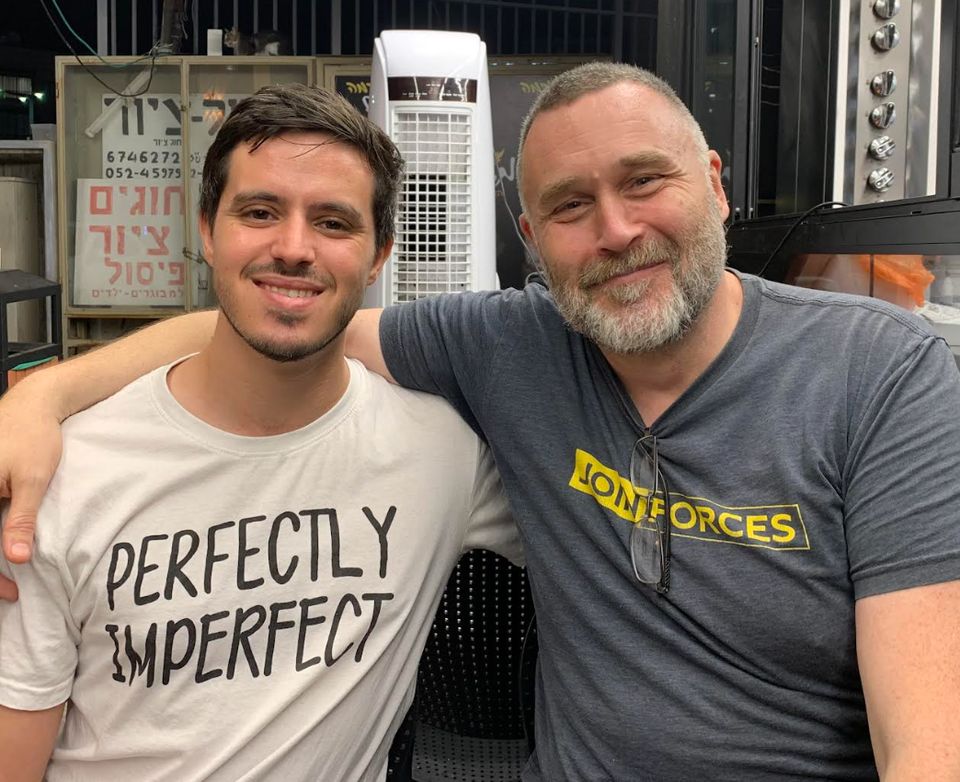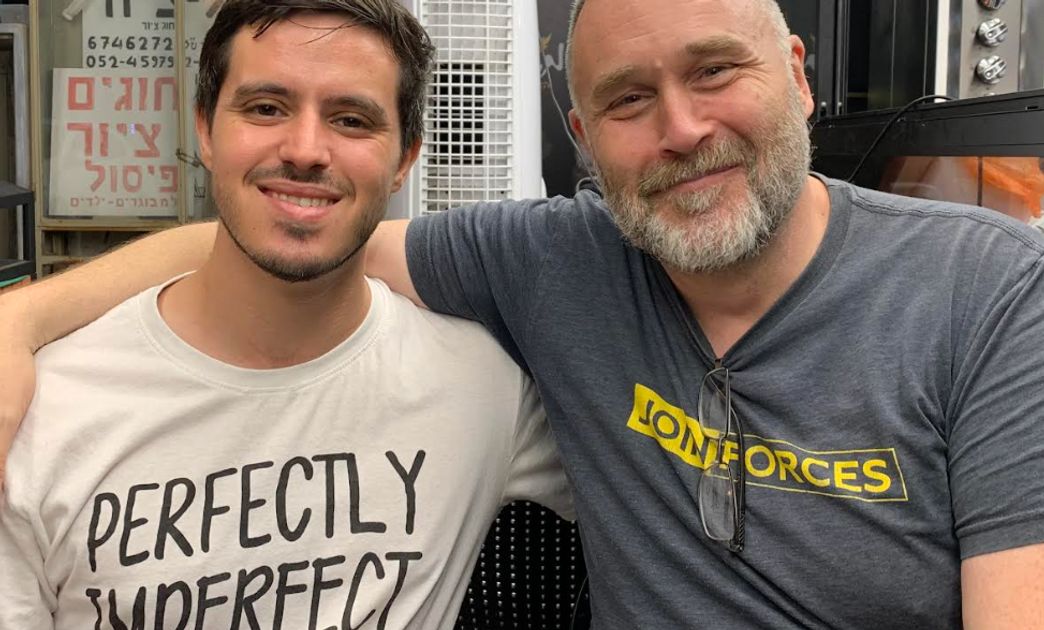Humanity has a complex, long-term relationship with a wide variety of drugs. In this article let’s delve into your personal relationship with drugs, how you frame them, and how you might upgrade these relationships to be more conscious and aligned with your path of self-development. Let’s include common drug sources like coffee, tea, and chocolate too, so this will be very inclusive.
My purpose here isn’t to encourage or discourage you from using any particular substances but rather to invite you to take a more conscious and honest look at your current frames, attitudes, biases, and behaviors, and determine if you want to make any improvements there.
This isn’t as simple as it may initially appear. You have many options for these relationships, much more nuanced than good/bad or right/wrong. If you’d appreciate a more mature exploration of this topic, you’ve come to the right place.
Language
A key aspect of our relationship with drugs is how we communicate about them, both to ourselves and to others.
Notice how different labels can change how you feel about a drug:
- Caffeine
- Coffee
- Green coffee
- Organic coffee
- Pour-over
- Cold brew coffee
- Small batch roasted coffee
- Artisan coffee
- Sumatra
- French roast
- Cuppa
- Tea
- Green tea
- White tea
- Coke
- Pepsi
- Cola
- Energy drink
- Red Bull
- 5-Hour Energy
- Latte
- Espresso
- Cappuccino
- Starbucks
- Decaf (still contains some caffeine)
- Chocolate
- Dark chocolate
- Hot chocolate
- Milk chocolate
- Chocolate milk
- Cocoa
- Cacao
- Cacao nibs
- Chocolate sprinkles
- Chocolate cake
- Chocolate ice cream
- Hershey’s Kiss
- Reese’s Peanut Butter Cup
- Gourmet Chocolate
- Chocolate Liquor
We could go on with hundreds more, right?
These labels all offer different ways of framing relationships with common stimulants. Mixing a stimulant with other substances like sugar or associating it with experiences like holidays can add complexity to that relationship too.
This variety offers people more inroads to the same type of drug. People may object to many of these pathways, but the drug only needs one acceptable opening to get into your body. You can reject coffee, tea, caffeinated sodas, and so on, but if you’re okay with dark chocolate, then you’re entering into a relationship with a drug, potentially for the rest of your life.
I’m starting with one of the most common drug relationships here so you can begin to grasp the complexity of these relationships and how easy it is for drugs to become a seemingly natural part of our lives these days, so much that we don’t even see it.
Notice how you get a different vibe and cultivate a different relationship with certain substances based on how you label them.
Consider labels like cannabis, marijuana, Mary Jane, pot, weed, etc? Does it make a difference if you see on someone’s dating profile “420 friendly” versus “pothead”?
Do you prefer MDMA, ecstasy, XTC, molly, love drug, Scooby Snacks, or some other name?
Would you rather do an LSD trip or drop acid? It’s the same substance either way, but your verbal framing can change how you relate to it.
Different people prefer different associations. I encourage you to think about how you want to frame these relationships, and consider how your preferences are affecting your behavior. How would it be different if you changed up your labels, such as by referring to your latte as stims instead?
What if Starbucks had an arguably more objective and accurate name like Daydrugs? How might that impact the relationship that people cultivate with it?
Socially Conditioned Drug Relationships
We all grow up learning certain default frames for drugs, and many people essentially stick with those inherited frames for the rest of their lives, never challenging them much.
My parents both consumed coffee daily and only had alcohol (mainly wine) very sparingly like at holidays. I never saw either of them drunk. They never smoked. My siblings and I had relatively easy access to caffeinated sodas, chocolate (including chocolate milk at school), and lots of items containing sugar. Some drugs were framed as normal and fine, others only for adults and only for special occasions, and others off limits entirely. But most of the time the drug label wasn’t applied to the socially acceptable drugs; it will usually just applied to the off-limit substances. And pharmaceutical drugs were typically referred to as medicine.
In my religious upbringing, I learned that Jesus was very non-judgmental about alcohol and even encouraged people to drink wine. Many churches served a sip of wine during mass, including to children. In that context it was socially acceptable.
As a child I also noticed that if I pointed out the confusing nature of these associations to adults or strayed from the socially conditioned framing, such as by referring to coffee as drugs or to a daily coffee drinker as an addict, I’d get some negative pushback. Some people would even vehemently defend their preferred frames. I quickly learned that adults often resisted alternative frames. I found it refreshing when a coffee drinker or chocolate lover would openly admit to being a stimulant addict, shamelessly owning it instead of hiding behind labels that allowed more room for denial. It was interesting that some people shamed any kind of addiction labeling while others simply embraced it as honest.
I also grew up during a time when the War on Drugs loomed large. I remember hearing Nancy Reagan’s “Just say no” campaign being blasted at us. Consequently, I gained an early negative association to the word drug, and I’ve noticed that I still dislike applying that label to certain types of substances where I want to explore a different kind of relationship, such as psychedelics. In fact, I feel better labeling coffee and chocolate as drugs than magic mushrooms, ayahuasca, or LSD. This doesn’t seem to be due to my personal experience (I’ve done mushrooms and aya but not LSD) but rather due to educating myself a lot more and developing a better understanding of the benefits and risks of certain substances.
The War on Drugs lumped psychedelics into the same category as cocaine and heroine, as if LSD and PCP were basically equivalent roads to hell. Meanwhile alcohol and smoking remained legal and socially okay despite how dangerous and addictive they were for so many people.
Mushrooms and LSD are not physiologically addictive. If you tried to consume magic mushrooms (or psilocybin) every day, you’d build a tolerance really quickly, and soon you’d have to be eating a ridiculous quantity to get the same effect. Even to microdose effectively, people need to take frequent days off (such as 4 days on, 2 days off) in order to avoid rapidly building a high tolerance.
I still get a weird internal reaction when I hear someone refer to magic mushrooms, psilocybin, LSD, or ayahuasca as drugs. That label is technically correct, but to me it carries a stigma that these substances don’t deserve. Consequently, I prefer labels like psychedelics, psychoactive substances, or transformational chemistry. These labels help me develop a more rational relationship instead of driving me back into the emotional and irrational framing that was conditioned into me during childhood.
The invitation here is to carefully reflect upon the socially conditioned aspects of your relationships with drugs. Look for bias in those relationships, and consciously challenge those biases to cultivate more honest, truth-aligned, and personally meaningful relationships. This may include changing the labels you apply to these relationships, so you can graduate from the old conditioned judgments that may not serve your highest good.
Intelligence
Take a conscious look at your prior conditioning and see if it’s aligned with accessing your best intelligence regarding how you now relate to certain substances. Did you inherit emotionally loaded frames like I did? If so, it might be wise to upgrade your framing, so you can fully engage your rational mind and not have it suppressed or derailed.
You may also choose to keep some of your older frames if you feel they serve you well. I grew up with a negative association to smoking, and to this day I’ve never smoked a cigarette or cigar. Not one puff. I still have no interest in doing so. I associate smoking with cancer, black lungs, cutting seven years off my lifespan, coughing, lower IQ, being socially stigmatized, repulsive odors, wasting money, being a bad influence on others, a nasty addiction, etc. I really don’t see any upside to smoking that could overcome all those negatives. Consequently, I’m okay with keeping these associations intact, till I see a rational reason to upgrade them. For now I feel that these associations protect me and keep me safer, helping me avoid a well-marked danger zone.
On the flip side, as I’ve been educating myself about psychedelics, I learned that my old associations were just dead wrong. I had highly irrational notions about certain substances and demonized them for much of my life. What helped me start opening my mind was when friends who had used substances such as ayahuasca, mushrooms, DMT, MDMA, and LSD told me their stories, and their reports didn’t mesh with my prior conditioning. That made me curious to start looking for facts, details, and more personal accounts, and that extra digging helped me upgrade my old thinking to be more rational and reality-based, as opposed to irrational and fear-based.
I think a sensible intention is to develop a rational and intelligent relationship with drugs. This means graduating from your childhood conditioning and shedding false notions. Simply seek to learn the truth. That’s a simple intention but a powerful one.
Exploration
Another pathway to upgrade your understanding of certain substances is to give yourself room to explore and experiment. The outside perspective looking in is always different from the inside perspective. There’s just no substitute for direct experience.
That said, I also think it’s wise to do your homework first, and look for promising avenues to explore instead of exploring willy nilly.
I don’t want to explore smoking because I see no promise there. How many people have shared amazing stories of smoking and encouraged me to try it? Zero. How many promising studies have encouraged me to try it? Zero. So that’s the shittiest invitation ever. Instant reject.
With other substances I’ve seen much more promising possibilities. That’s true of coffee, chocolate, ayahuasca, LSD, mushrooms (psilocybin), San Pedro, MDMA, DMT, and several others. There’s no compelling reason to explore the apparent duds when there are much better offers on the table. With psychedelics there’s a new gold rush happening, and it seems well-founded as people really do appear to be finding lots of proverbial gold there.
Just as you can flex with your preferred labels, you may also discover some flexibility in the windows that feel open to you for exploration. For instance, it may feel very different if a trusted friend offers you a puff of a joint at a party versus going out and buying one yourself. So pay attention to accessibility because it’s easier to explore the substances that are more accessible for you.
I used tobacco once during a rapé ceremony at an ayahuasca retreat. A shaman used a pipe to blow it up my nose. And wow was that intense! It felt like my brain was injected with Sriracha for a few minutes. It was also fun and accessible to do it with a group of friends and see everyone rolling on the floor howling afterwards – an odd sort of bonding experience. Even though I retain major negative associations to smoking cigarettes, I still had the opening to engage with tobacco in a narrow ceremonial and social context, and I have no regrets about that. I don’t feel any significant desire to repeat the experience, but I’m glad I took advantage of the opening that presented itself to do that particular exploration.
My first psychedelic experience also presented itself as an open window that I could accept. It was at an ayahuasca retreat center in Costa Rica in 2019. If I accepted the invite, I’d be going with a group of about a dozen friends, and Rachelle would be going too. I didn’t feel any peer pressure to go, but I did see it as a nice opportunity to have an experience in a fun and social way. I liked that I’d be able to go through the integration process with smart, growth-oriented people I knew, and it seemed like it would be a unique bonding experience. It was all of that and more, so I’m really glad I went.
You may think that exploration is risky, and yes there is some risk there. But also consider the risk of not exploring. Missing out on a powerful transformational opportunity can be just as much of a mistake as trying something and having a bad experience. Be careful not to overweight errors of commission because errors of omission can be just as bad or even worse. Imagine missing the chance to permanently upgrade your thinking, emotional baseline, understanding of reality, and so on – that’s a serious risk too.
We humans have a known bias towards irrational levels of loss aversion – i.e. not making advantageous bets when the odds are clearly in our favor because we’re too afraid of losing. It’s important to recognize this and consciously compensate for this bias by giving due consideration to the potential upsides. I do this by adding a bit more weight to exploration and curiosity, which has been working very well for me, particularly when it comes to exploring psychedelics. I like to play it safe while also giving myself reasonable opportunities for significant wins and breakthroughs.
Abstinence
Another option is to choose to abstain from drugs. You can do this on a case-by-case basis, or you can try to universally abstain. If you do the latter, you’ll need to avoid all coffee, caffeinated tea, chocolate, sugar, alcohol, pharmaceuticals, and more. If you want to be ultra-pure, you ought to abstain from tap water too in many areas since it’s contaminated with small amounts of many drugs.
I was fairly purist in abstaining from most drugs, including caffeine and alcohol, for many years of my life, especially during my 20s. Some years I avoided all pharmaceuticals too. I liked the feeling of being super clean. I also went vegetarian and then vegan during those years. I trained in martial arts and ran a marathon too, so this abstinent relationship with drugs meshed well with my overall lifestyle.
My framing back then was very physical. I wanted my body to be as clean as possible. I thought any sort of drugs would degrade my mental and emotional performance, so I felt it best to avoid them.
I think this is a viable option. It can be difficult in some situations, but it’s not impossible. Many people have abstinent relationships with one or more substances and seem very aligned with those relationships.
Moderation
Another option for relating to drugs is to use them in moderation, like an experiential accent to your life. Allow yourself the flexibility for some occasional usage when you think the benefits are worth the risks, and do your best to minimize the potential harm to yourself and others.
In the long run, I found the abstinence approach limiting because it prevented having certain experiences that I might otherwise find worthwhile. So I gradually opened up more to find a different calibration point. I liked having the flexibility to explore now and then. I didn’t find that too great of a sacrifice.
One way to make these decisions is to check in with your anticipated feelings of regret. Are you more likely to regret having an experience or not having it? Make the decision you think will lead to the least regret.
Another option is to go where you think the appreciation will be the greatest. This is my preferred method. I like to ask: On balance will I experience more appreciation from having this experience or from avoiding the experience? That helps me make choices I appreciate (obviously).
Sometimes I have coffee, chocolate, or alcohol, but I will also go months at a stretch without them. I particularly enjoy exploring different kinds of wine with Rachelle now and then, especially after we did a Napa Valley wine tasting trip together many years ago. It’s an occasional indulgence that I enjoy and appreciate, as long as I don’t do it too often.
We like to pour 2.5-ounce glasses (half of a regular glass) of wine, and sometimes that’s all we’ll have in an evening. If we want more, we’ll pour another 2.5-ounce serving. If we order wine or some other alcoholic drink at a restaurant (we usually don’t), we will often split one drink between us. We don’t need many sips to have an experience we’ll appreciate.
In a few weeks when we’re in Scotland, we’ll visit a Scotch distillery as one of many tourist activities, and of course we’re going to try the Scotch. For most of my life I hated Scotch, but I opted to try more varieties of it a few years ago and found some that I like. My current favorite is Speyside Scotch. I don’t like having a lot of it, but just a half-ounce now and then can really enliven my taste buds in an interesting way. Again it’s one of those accents that I appreciate.
Moderation doesn’t work well for everyone though, and it may work better for some substances than others. There are different ways of doing it too.
It’s easy for me to be moderate with alcohol because I don’t find it addictive. My body doesn’t crave it. In fact, when I have some, I can often tell my body would rather avoid it for a while afterwards. I can’t ever see myself falling into the pattern of drinking every day or even every week or month. Rachelle is much the same. We can have alcohol in the house and not feel inclined to touch it for many weeks in a row. But I know others for whom this isn’t an option. If they have alcohol in their house, they’ll consume it daily till it’s all gone.
With coffee, however, I can’t have this same kind of relationship because caffeine is very addictive for me. If I have it once, pretty soon I’m having it every day, usually twice a day. I have gotten better at this, but generally the best I can do if I want to experience coffee is to cycle with it, where I will have it daily for some months of the year, and then I’ll go through the weeklong detox process and have some months of total abstention. When I’m coffee-free, I usually need to be chocolate-free too because chocolate is my gateway drug back to coffee. Same goes with white tea, green tea, etc. Any stimulants, even mild ones, will eventually hurl me back into coffee’s welcoming embrace.
For now I actually like having this on-again, off-again relationship with coffee. I notice that when I’m drinking coffee, my thinking is usually narrower in focus and more linear, like I’m going through a sort of tunnel mentally. Sometimes that’s helpful, like when I want to advance in a pretty clear direction.
When I’m not consuming coffee, my thinking opens up more. My perspective widens. I’m able to see the big picture more clearly. That’s really good for making fresh high-level decisions and balancing many different possibilities. So this relationship with coffee is like shifting between yin and yang modes for me. I like both but at different times of year. It took many years to figure out this balance.
I notice that the balance regulates itself pretty well too just by listening to my inner signals. If I consume caffeine for too many months in a row, my thinking starts becoming a bit chaotic, and I find it harder to focus. I also notice a build-up of joint pain, like while running, as if I’m becoming slightly arthritic. That all goes away within a week after I stop having coffee.
Then after some caffeine-free time, I eventually begin feeling that it would be nice to start having some again. Sometimes that’s an external event like a retreat where I know people will be drinking coffee, or maybe it’s a trip where I know Rachelle will want to visit some nice cafes, and I want to share in that experience with her. This cycling approach lets me appreciate having coffee and also not having coffee.
By contrast many other people I know, including Rachelle, are able to have coffee daily for years with apparently no negative side effects. I seem to be able to do that when I eat all raw or mostly raw. Then I don’t experience the build-up of negative side effects. It could be that the raw foods help to counteract the long-term effects of the coffee in ways that cooked foods don’t.
Pay attention to how your body, mind, and emotions react, especially when taking substances frequently. See if you can adopt an approach that maximizes your long-term appreciation, which may be very different from what you’ve been taught or what you’ve seen other people doing.
I feel that I got stuck for many years by trying to blindly following patterns I learned from others instead of paying more attention to my own inner responses and what they were teaching me about myself. I feel that my own body and mind give me the best advice, but only when I can listen to them directly and open-mindedly, without filtering through preconceived notions and irrational biases.
Trust
This leads into the next type of relationship, which is trust.
One perspective I use today is that all drugs are energy patterns. Each drug is like a software program that interfaces with our personal energy matrices. These encodings are actually purposeful and meant to serve us in some way. I find it wise to trust those encodings. I even see it as being purposeful when people go through phases of addiction, like it’s something their spirit or energy needs to experience for a while. Remember that all drug addictions are temporary.
This doesn’t mean trusting that a drug will always behave as you desire or that there will be no negative consequences. It’s more about trusting the drug to play the role it’s meant to play while also bending its behavior with some intentionality.
Start by trusting that alcohol will behave like alcohol. Trust that psilocybin will behave like psilocybin. But within the range of possibilities for each drug that you’re open to exploring, also invite yourself to develop a trust-based relationship with the substance.
This is much like trusting human beings to behave like human beings actually behave, which is a deeper and more mature level of trust than the immature form that invites trust wounds. The immature form of trust is hoping that people will behave as you want or expect them to.
It’s very difficult for a drug to betray you if you adopt the mature form of trust and let go of the immature form. It’s important for you to assume the responsibility for your role in this relationship too, knowing that you have agency to make intelligent decisions based on a drug’s actual range of possibilities. This includes being more open-minded when you’re not sure about a drug’s likely effects.
Trust is especially powerful and important when using psychedelics. There’s such a wide range of possibilities that it would be foolish to blame the drug for not behaving the way you want it to behave. You’re less likely to be disappointed if you trust psychedelics to behave like psychedelics, which includes allowing plenty of room for surprise.
I found this to be a particular useful frame that gives me enough room to explore and to keep having more growth experiences. I trust that each drug will yield an experience within its range of possible effects, and then I set intentions that align with this range. Alcohol can align with the intention to be more playful and less inhibited. Magic mushrooms could mesh well with the intention to have a deep inner transformational journey. Caffeine might be a good fit for crafting a detailed and thorough article.
Curiosity and Dabbling
Some people explore various drugs to satisfy their curiosity. They may continue to dabble for curiosity’s sake, or they may feel satisfied after a single experience.
Many people have taken a particular drug, such as LSD, one time in their entire lives, and they felt that was enough for them. They satisfied their curiosity and never wanted to repeat the experience.
My relationship with marijuana has been a bit like this. I think I’ve done it six times total, always while traveling. I’ve actually never done it in Las Vegas where I live, even though it’s been legalized here and there are plenty of dispensaries where it’s easily accessible.
I feel like my curiosity about marijuana has been mostly satisfied. It makes me a bit giddy, but otherwise I don’t find the effects very impressive or interesting. I feel like it might be more useful to me if I had depression or anxiety. It’s hard for me to find a good use case for it.
I’m a little bit curious to try vegan gummies at some point, but otherwise I’m way more curious about psychedelic substances like mushrooms, LSD, MDMA, DMT, San Pedro, and a few others. Marijuana seems rather boring by comparison. I actually find caffeine more interesting.
That said, I’m still open to using it very occasionally, like if friends are having it at a party, I might enjoy joining them in the experience. I wouldn’t feel any pressure to do so though.
Curiosity-driven dabbling is a perfectly valid relationship to have with a substance. Don’t feel that you need to press beyond that if a substance doesn’t seem to be offering a worthwhile package of benefits.
Social Use
That leads to another aspect of our relationship with drugs, which is the social side. This is how many people end up trying various drugs in the first place – their peers introduce them to it.
Many people don’t have much of a relationship with certain drugs at all except when they connect to drugs through other people. Some drugs (such as MDMA) affect socialization too, so the experiences can be better when shared with other people.
Consider whether you also want to explore solo experiences at some point and with which substances. That’s an option, and it can be a very different kind of experience.
For many people, it’s not a big deal to drink coffee, eat chocolate, or smoke while alone. But they might frown upon drinking alcohol alone or doing MDMA alone. Notice that you may have different solo and social relationships with the same substances.
Another factor is that the experience can be very different depending on the people you’re with. In some cases this can be even more important than the specific substance and even the dosage.
I feel very comfortable having Rachelle as my sitter for psychedelic explorations because she’s very good at keeping her vibe up, even when I’m having a rough ride. I wouldn’t want to have such experiences with people whose energy, emotions, or behavior might pull me in an undesirable direction like anxiety, stress, worry, frustration, etc. That could too easily lead to a hellishly bad trip. I feel fortunate that my first four psychedelic journeys (ayahuasca) were with positive, growth-oriented friends.
In some ways the safety can be greater during a social experience since there may be other people looking out for you. However, other people can also be a source of risk, whether accidental or deliberate, especially if they’re taking substances too.
I advise you to also consider the supreme importance of an aligned social circle even when you’re substance-free. Consider that a psychedelic trip often amplifies energies that are already present. If you wouldn’t feel safe doing a trip with certain people who are regularly present in your life right now (online or offline), do they even belong in your life at all?
This is an interesting criteria for raising your social standards. For each person in your life, ask: Would I ever want to trip with this person? If the answer is no, consider switching to an abstinent relationship with that person altogether. Free up your energy to attract the right Guild members for you.
Self-Development, Growth, and Transformation
This is my favorite type of relationship to explore with drugs, particularly psychedelics, which show incredible promise when consciously used as tools of personal transformation.
I even think that many other drugs can be used for personal growth, including caffeine and alcohol, when this level of intentionality is brought to the experience, combined with the mature form of trust that I mentioned earlier in the Trust section.
Here are some interesting intentions to consider when using drugs for conscious growth:
- Show me the next steps on my life path.
- Teach me what I need to know.
- Show me how reality really works.
- Teach me something about reality that I didn’t know.
- Help me release / overcome / forgive ____.
- Heal my heart.
- Show me who I’m meant to be.
- Let me speak with my higher self.
- Bathe me in love and oneness.
- Wake me up.
- Ignite my soul.
- Help me develop a trusting relationship with life.
- Help me let go of fear, anxiety, depression, shame, guilt, regret, etc.
- Help me transform my relationship with a painful or difficult memory.
- Tell me about my life purpose.
- Help me overcome my fear of death.
- Show me the multiverse, non-physical reality, other dimensions, etc.
- I invite a love-aligned, non-physical entity to come speak with me.
- I invite a deceased friend or relative to come speak with me.
- Open my third eye.
- Inspire me creatively.
- Connect me with my muse.
- Show me the solution to ____.
- Surprise me. I trust you.
It may take some exploration to determine which intentions give you the most transformational experiences. This is one aspect of psychedelic exploration that I’m super curious about. There are so many different kinds of intentions to explore, and they really do seem to have powerful effects.
I suggest that you don’t blindly follow other people’s advice even if they seem certain about the best intentions to set. I did that with my first ayahuasca experience and found the recommended intentions, such as “Heal my heart,” to not be the best ones for me. Especially beware of presumptuous intentions like that one – Does everyone’s heart really need healing? Assuming that yours needs healing may invite an experience to validate that perspective, but you might have a more worthwhile experience with a very different intention. The “heal my heart” intention took me deep into intense emotional space with lots of crying, but in retrospect I can’t say that it was particularly transformational. I feel like the substance basically put on a show for me because I asked it to. I think I gained more transformational value by inviting ayahuasca’s wisdom to gently dialogue with me on the subsequent ceremony nights.
You can also try single-word intentions. I find those easier to remember when I’m going through the experience. Last time I even wrote them down on paper, so I could physically read them as I was beginning the trip. I used only four words for my intention: deep, gentle, loving, light. That was plenty for a very deep, nine-hour mushroom trip.
Activation and Suppression
Another reason people take drugs is to activate or suppress some aspect of their biology, like turning a volume dial. Many people use caffeine to amp up their alertness, alcohol to help them feel more social and less inhibited, and other drugs to suppress anxiety, depression, or pain.
One aspect to consider here is whether this relationship is serving you. How do you feel about using drugs for this purpose? Are you taking any now for that purpose, and if so, does that relationship feel aligned to you?
This type of relationship with drugs can often be tricky to maintain, especially if the drugs have potential negative side effects. Many women, for instance, have such a relationship with birth control pills, doing their best to balance the risks versus rewards. Because it’s not a perfect solution, this can be an uneasy relationship that retains some tension and doubt even after a decision is made.
This is still a valid way to relate to certain drugs, especially those designed for that purpose. Just be wary of potential side effects and long-term dependency or addiction risks. Be sure to keep checking in with yourself, your body, your thoughts, and your feelings to assess if the relationship is working for you. Be ready to acknowledge when your assessment has changed because many people do eventually experience a change of mind or heart about these relationships. Pay attention to your inner truth, and do your best to honor it.
Curing
One reason many people are turning to psychedelics is that it can enable them to stop taking pharmaceuticals long-term for activation or suppression. They finally cure the underlying condition and reach a new balancing point, solving the activation or suppression issue once and for all.
Psychedelics in particular are offering many people profound transformations as they’re being studied by researchers, scientists, doctors, and therapists. People are reporting overcoming depression, anxiety, PTSD, and various addictions with just one dose. I’ve personally met people who’ve claimed to have had such transformations, both with high doses taken 1-2 times or with long-term microdosing.
With microdosing there’s some variability too, with some people finding that a sufficient duration of microdosing seems to cure or diminish their underlying condition well enough that they can stop microdosing and still retain the lasting benefits, and other people finding that if they stop microdosing, their symptoms soon return. In the latter case, people often prefer long-term microdosing to long-term pharmaceutical use, feeling that it’s safer and healthier for them.
As I shared in my Psychedelic Science 2023 conference review, there’s a lot of promising research unfolding in this area.
This is another situation where it’s important to make a rational and informed decision, and especially watch out for any irrational bias towards loss aversion that could cause you to miss out on something that could be life-changing. The chance to permanently cure or significantly improve a long-term condition like depression, anxiety, PTSD, or addiction is a pretty huge win for some people, especially when steps are taken to minimize the downside risks. Weigh this against the risk of having that same condition for the rest of your life or even seeing it worsen over time.
Creativity
Countless books, movies, and works of art were inspired or assisted by various drugs. One reason is that many drugs help people stretch beyond their default mode of thinking and offer fresh perspectives.
This is an interesting way to open up the flow of creativity and potentially put out more creative work.
I’ve been making a living from my creative work for decades and haven’t had a job in 30+ years, so I don’t feel like I need substances to help me in this area. But I am super curious to see what fresh creative work I might produce with the perspective shifts that psychedelics can open up.
I also notice some extra motivation to write and share more after my recent mushroom trips (three in the last few weeks).
I’ve got a three-week trip to the UK coming up soon, and when I return I’d love to dive into the Engage course that I began working on earlier this year. I’d also like to do some additional psychedelic journeys while developing it. It’s my sixth major course, so I’m up for having a more expansive kind of experience this time. I don’t feel I need psychedelics to create more, but I am curious to see how I might create differently by taking one or more substances along the way.
I also want to write more articles inspired by various insights that came through as a result of processing and integrating psychedelic experiences, not just direct reports about the experiences themselves. The flow of fresh ideas is actually getting to be a bit much this week – way faster than I can actually write them up and publish them.
How do you feel about using drugs for this purpose?
I don’t like the idea of becoming dependent upon drugs for creativity, and I’m glad that was never an issue for me, but I do find it fascinating to see what more we humans can create with drugs as part of the process. I’m glad that many people have been exploring that because I think it really adds value to our lives. So this is an area where I’m very open-minded about doing more personal experimentation.
I also like that this can make the experience of creativity more divergent and adventurous for me, especially after so many years of doing creative work. It keeps my creative future from becoming too tame and predictable.
Pleasure and Recreation
Drugs are commonly used for pleasure, recreation, and entertainment of course, which can be a mixed blessing. Many drugs can make us feel really good, but this relationship may invite a great deal of risk depending on which drugs you use and how the relationship flows over time.
One risk here is that using drugs in this manner can lead to addiction. Another risk is that such usage can gradually numb your ability to feel as much pleasure from other pursuits, such as gaining a sense of accomplishment from completing a task. You may experience a loss of natural motivation if the drug relationship interferes with your normal biochemical reward pathways. This can lead to consuming the drug more frequently or at higher doses in an attempt to restore your previous emotional baseline.
My advice is to be very cautious if you use drugs for pleasure, especially if you perceive a meaningful risk of getting addicted or throwing your physiology out of whack. Trying to maintain this type of relationship with drugs has been a slippery slope for many people.
I personally know someone who became very addicted to cocaine, and that addiction wrecked his career, finances, and marriage. He maxed out his personal and business credit to buy more cocaine, then secretly opened new credit accounts under his wife’s name without telling her and maxed those out too. Eventually his house of cards came tumbling down, and he finally began working on overcoming his addiction. With strong encouragement from her family to get the hell out that relationship, his wife left him while he was in rehab. He eventually rebuilt his life in a new direction, including becoming very religious, but it sure wasn’t easy for him. He really seemed like a different person afterwards, perhaps because I’d grown accustomed to his cocaine-fueled personality. That’s another factor to take into consideration – that drugs may reshape your personality to such a degree that you may end up having to rebuild a lot of human relationships after getting off them, possibly because people will be left wondering if they ever really knew you.
One way to help prevent this relationship from overtaking you is by having some totally drug-free weeks or months every year, ideally combined with eating a super clean diet. For me this means abstaining from coffee, chocolate, alcohol, and anything else that may be considered a drug. I will often eat fully or mostly raw for many weeks in a row too; in 2021 I did that for the whole year. I like to give my body plenty of clean stretches. I find these periods really good for detoxification, mental clarity improvements, emotional rebalancing, and resetting any potential drug-related tolerances (mainly caffeine). One benefit is that doing this regularly can restore your sensitivity to various drugs. Many foods will taste and smell better afterwards too.
Another good practice is to place extra rails on when you’ll use drugs for pleasure, so as to limit how frequently you’ll do that. As I noted earlier, I’ve only smoked pot while traveling and only with other people, so I never created an association to doing it at home, in my home city, or by myself. That makes it pretty tough for me to get addicted to it. I’ve met people who can’t seem to function without smoking pot daily, and I have no desire to go that route since it seems like a fairly sad place to be, so I regard such people as useful signposts warning of the potential dangers of going too far with a particular drug relationship. I remember cuddling with such a woman once and noting how fragmented her energy felt, as if her spirit was broken into shards like a shattered mirror.
Be ultra-cautious about taking drugs where pleasure is the primary benefit, such as heroin. That can really spiral your life downward quickly. Personally I prefer to maintain an abstinent relationship with such substances that have such a high risk to reward ratio.
With many types of psychedelics, pleasure-based addiction is highly unlikely. It’s pretty much unheard of to get addicted to LSD, for instance. Even when microdosing regularly, LSD isn’t likely to create a physiological addiction. With some psychedelics that can produce pleasurable feelings though, such as MDMA (Ecstasy), it’s possible to take it more frequently than is wise due to a desire to experience those delightful feelings again. For some people this can create negative side effects like feeling down when not taking MDMA.
This is one reason I feel pretty safe exploring psychedelics. I see little chance of ever becoming addicted to them. It’s nice to have some space between sessions, so I can do the deep inner work of integration by journaling, reflecting, and discussing the experience with friends. I like that psychedelics don’t take me away from socializing but actually improve my social life. So instead of using drugs for pleasure, consider the big picture of using drugs to increase your overall happiness, especially when you’re not actively taking them.
Be sure to consider the risk-reward ratio too. In terms of potential harm to oneself and others, alcohol is perhaps the most dangerous common drug out there, followed by heroin, meth, cocaine, and tobacco. Cannabis is significantly safer than all of those. And mushrooms, LSD, MDMA, and Ketamine are all significantly safer than cannabis. See this drug safety chart for more details.
I like exploring with mushrooms because they’re a lot less risky than other substances, and I can see with my eyes that a shroom is a shroom, as opposed to wondering what a pill may actually contain. Most MDMA isn’t pure, for instance, since it’s cut with other substances. I also don’t have to worry about what dubious source I might be supporting with mushrooms since they aren’t coming from some cartel operation.
Escape
Another common use of drugs is to escape. Take a break from life by putting it on pause for a while, or at least make it seem that way. It’s a coping strategy for dealing with life’s pressures (work, money, relationships, family demands, etc.). For some it’s an escape from boredom.
How this relationship develops depends on your frequency and intensity of escape. Are you using drugs occasionally as a pressure-release value or perhaps to add a bit more variety to your life? Does this help you return to your life with a bit more capacity afterwards? This kind of escape-based relationship can be very positive, like taking a vacation now and then.
Alternatively, have drugs become a more frequent escape, such that your life is essentially on pause and failing to advance? Is this relationship with drugs interfering with your human relationships, fueling more disconnection and isolation? This can be a very problematic relationship for anyone who values growth and self-development, essentially trapping you in a dead end for a while.
Use escape to help you do the work of developing yourself. Be wary of trying to escape from doing the work itself though.
One significant risk of using drugs for frequent escape is that it can become a version of slow suicide, all the way till you’ve escaping your body through death. Spiritually I like to hold the view that there’s really no escape there because you’ll simply carry those problems with your afterwards. It’s easier to work through them while you’re here.
You may find it beneficial to use drugs for occasional escape, such that you’re better able to do the work of being human. This is another situation where the standard of appreciation can help. Ask yourself if you’d likely appreciate a brief escape. I especially like to ask if my future self would appreciate it. That gives me a pretty clear answer as to what my best thinking has to say about the option.
Performance
One interesting use of drugs is to enhance mental and/or physical performance. Caffeine, Adderall, and steroids come to mind here.
In this context consider whether the drug will be used only occasionally to yield a long-term performance boost afterwards, such as with psychedelics, or it it must be taken regularly to provide those benefits. The latter situation generally entails more risk, including the risk of addiction and other side effects that may worsen the longer you consume the drug.
Last month I learned that psychedelics have been used by athletes for this purpose. Psychedelics don’t really help with physical performance, and if they did they’d likely be banned in many pro sports. However, psychedelics can help with improving emotions that affect performance, such as by creating a stronger sense of teamwork, and they can also help with pain in some situations. NFL quarterback Aaron Rodgers is one such athlete who used psychedelics in a sports context. I saw him speak about it at the Psychedelic Science 2023 conference a few weeks ago.
If you take any drugs for performance reasons, I also recommend going drug-free for some extended time periods (ideally for at least a month or two each year) in order to reset your baseline. This can actually make the drug more effective if and when you start taking it again.
One thing I like about psychedelics is their potential to offer a long-term mental or emotional upgrade even from taking the drug only once (if the dosage is high enough). Their relative safety makes this an interesting bet to make. I particularly loved hearing John Mackay’s story at the PS2023 conference, where he shared how taking LSD had a profound effect on him, which eventually led to the founding of Whole Foods. He acknowledged that Whole Foods wouldn’t exist if not for his taking LSD. It’s fascinating how a very small amount of certain substances can unlock a whole lot of performance in some people.
Addiction and Dependency
Addiction and dependency are common aspects of people’s relationships with drugs. Although this is usually not due to conscious choice, it can be, such as when someone willingly starts consuming a substance they know from prior experience will almost certainly re-habitualize them, and they choose to do so anyway.
Because addiction and dependency can cause serious problems with some substances, including to your health, finances, and the well-being of others, it’s wise to do your homework first and research a new substance to learn about its effects, history, and likelihood of addiction. Look to your family history of drug use since that’s a good predictor as well. My family doesn’t have a history of alcohol addiction that I’m aware of, but I know that one distant relative died from cancer due to smoking, and I see that caffeine dependency is common in my family. The biggest addiction I see in my family tree is religion, so I feel fortunate to have shed that one during my teenage years, preferring to maintain an abstinent relationship afterwards.
I don’t consider dependency to be a binary state but rather a continuum. I think an interesting way to gauge your level of attachment is when you consider going a year without a particular substance. What’s your inner reaction to that?
Could you go a year with zero caffeine, including no coffee, caffeinated tea, or chocolate? If you feel significant internal resistance to that, I’d say you have some level of dependency there. I recognize this in myself too. I can do a year stimulant-free and have done so many times before, but when I’m drinking coffee regularly, I also recognize that part of me will emotionally resist that idea.
What about cannabis? Could you do a year pot-free? With that question I get zero resistance – that would be a breeze. The last time I smoked pot was in 2013, so I’ve already gone a decade without it. I think I’m pretty safe in claiming dependency-free status there. I know plenty of people who’d react with strong resistance to the suggestion of taking a year off though.
I think there’s more subtlety to dependency than this though. You might want to continue exploring your relationship with a substance but not feel physiologically addicted to it. It can be tricky to assess the difference, but pay attention to which part of you the objection is coming from when you consider taking a year off. How needy does that objecting part feel? Also consider why you’re taking the substance.
I do think it’s more likely to point to some level of dependence if you’re consuming a substance for pleasure or escape, and when you consider taking a year off, the objection feels clingy and emotional, as if you’d be deprived of a basic need. Contrast this with having a mild sense of disappointment regarding missing out on the growth and transformation benefits if you abstain for a lengthy period of time – having more of a modest “Ah that would be a shame to abstain” feeling. Presently I get that sort of feeling when I think about taking a year off of psychedelics. The part of me that objects doesn’t feel needy or clingy. The objection feels like it’s coming from a more rational part of me that thinks I might miss out on some really interesting growth lessons and potential transformative gains if I put this exploration on pause for that long.
Another way to tell if you’re dependent or addicted is to stop all consumption for a while and see how your body reacts. If you get withdrawal symptoms, that’s a good sign you’ve developed a dependency, and your physiology needs time to adapt to life without the substance.
Lots of humans are long-term drug addicts in the physiological sense, especially with caffeine, cigarettes, alcohol, and various pharmaceuticals. I think the important factor here is to be honest, and to really assess your relationship with an addictive substance, it’s important to reflect upon your relationship from both sides – when you’re consuming it and when you’re not. Then compare notes.
A good way to do this is to journal about your relationship with the substance, sometimes while you’re consuming it and sometimes while you aren’t. Then read those entries back, again both while you’re consuming and while you aren’t. This will help you develop a broader perspective.
I did this with caffeine and found that I have a relatively positive relationship with it when I haven’t been consuming it continuously for too long. But if I have it daily for several months at a stretch, that relationship predictably sours, and then I feel much better switching to caffeine-free abstinence for a while.
To make this assessment of course requires that you take some time off from a substance. You can use this method in a broader sense too, especially when facing tricky decisions. For instance, how do you feel about your work when you’re at work and when you’re at home? Write journal entries about it at work and at home, and read them back in those different environments to compare. This will give you a more balanced perspective.
Shame, Fear, Guilt, and Regret
Negative emotions can become a part of people’s relationships with drugs for a variety of reasons. The illegality of many substances can be an issue, especially if you run into legal problems. Another issue can be the impact on your finances if you’re spending a lot of money on drugs or if drug use is negatively impacting your finances or income. More issues can arise if you’re worried about or subjected to judgmental attitudes from others. And there can be impacts to your work life as well, such as the risk of losing your job if your employer learned about your drug use.
If you have negative emotions wrapped into your relationship with any substances, there’s always the invitation to sort those out and decide what’s really true for you. See if you can separate the truth aspect of your relationship (i.e. the facts) from the interpretation that you and others may be layering on top of it (i.e. the assignment of meaning). Even as the facts may continue unchanged, you always have the power to alter the assignment of meaning.
I grew up being conditioned to layer a very negative – and highly irrational – assignment of meaning to drugs. It took a while to re-educate myself and teach my brain more truth, a process which is still ongoing. I found it important to be more flexible and open-minded regarding the assignment of meaning regarding drug consumption because that largely determines how I feel about it. I want to assign meanings that aligns with rationality, not with someone’s manipulative agendas.
I see no point in assigning meaning that generates negative emotions like shame, guilt, fear, and regret. Those assignments of meaning often trace back to someone else trying to encourage those emotions as leverage for control. Once you see that, it’s easier to dump those frames, which restores your own freedom to choose a more intelligent meaning.
For instance, are you a bad person or a derelict if you use drugs? Who wants you to feel that way? Whom does that framing serve? Yup, someone who wants to control your behavior. Do you want to be controlled?
What if you’ve made some big mistakes with drugs and got into some major trouble with them? You can still let the facts be the facts. There’s no need to feel bad about that. We humans make lots of mistakes. It makes more sense to own that. Shaming ourselves about it doesn’t actually help, so we can simply skip that part.
I prefer to frame mistakes as lessons and give myself room to make mistakes without beating myself up about it. It’s all part of the learning process. Drug-related mistakes can actually provide many benefits, such as turning into humorous stories when retold, which can lead to more intimacy and connection with people. I often love hearing stories about people’s worst drug-related experiences because when enough time passes, they tend to reflect back on such times with a sense of humor and hard-won wisdom, and we can connect over the sheer craziness of it all.
Also consider that if you use shame and guilt on other people, that’s going to affect your relationships with them, and you’re likely to hear less truth from them in return. If you’re doing this with anyone, also consider whether its a manipulative control strategy, and take a deeper look at whether that’s the kind of person you really want to be. Trying to make someone feel bad about themselves is very different than setting, communicating, and maintaining clear boundaries for yourself, your home, etc. You can maintain the boundaries you need without needing to manipulate anyone emotionally.
Ownership and Responsibility
For various reasons there can be a lot of denial regarding drug use. I want to distinguish this from keeping secrets, which you may be doing for very rational reasons, such as to prevent potential harm, legal jeopardy, or loss for yourself and others. Or you may prefer to avoid having to hear other people’s judgments, especially if you don’t find them helpful or productive.
I think one of the healthiest ways to relate to drugs is with ownership and responsibility. If you’re doing any sort of drugs, remember that you’re the one making that decision, so you might as well own it. If things have gotten out of control or if you’ve become addicted, you might as well own that too.
Where does your relationship with drugs exist? It’s all in your mind. The way you think and feel about that relationship is the relationship. Regardless of how much control you think you have, the responsibility for that relationship rests with you because you’re the one who has to deal with it.
Keep your hand on the wheel of responsibility. This includes being responsible for your feelings. If you don’t like the emotions that are bubbling up within you, you can invest in changing them as well. This won’t necessarily be easy, but it’s easier than dropping into helplessness.
I do a lot of self-development exploration, and I’ve so often seen how important is to fully own what I’m exploring, even if I’m relatively new to it and don’t really know what I’m doing yet. With any new exploration, there’s that bumbling beginner phase. I found it best to own my right to explore well beyond my current competencies. That’s how I learn and grow. It makes no sense to stick to what I know for sure because then I’ll stop growing. I’ll have more to offer and share with the world if I keep learning and exploring, and there’s value in sharing during the beginner phase as well.
I found that other people’s judgments were much worse when I wasn’t fully owning this aspect of my life, as if for some reason I needed to apologize for wanting to stretch myself. Some people also held the ridiculous notion that I was obligated to satisfy their expectations of me and that if I didn’t, they had to nudge me back in line. I quickly learned to enforce a stronger boundary there and to make it clear that I didn’t consent to suffering fools who’d object with harsh judgments whenever I got into something new. That worked very well, and it seems like I did a very good job of shedding those types of people a long time ago. It was a good kind of purge.
How many people have expressed objection to my exploration of psychedelics this year? I’m pretty sure it’s zero; at least I don’t recall anyone doing so. That isn’t because psychedelics aren’t controversial. I’m convinced it’s because I fully own this exploration. Holographically speaking, this is yet another pointer to the importance of having strong intentionality, similar to what happens during a psychedelic journey.
I say that if you’re going to consciously explore drugs, do your best to fully own it. Pre-decide what you’ll share about your explorations and whom you’ll share it with. And declare a boundary that you needn’t deal with anyone’s irrational judgments or attempts to emotionally manipulate you.
Recognize too that a lot of very smart, creative, high-contributing people have consumed various drugs during their lives. Many credit such experiences as major turning points.
Rebellion
One last relationship you can have with drugs that I’ll mention is that of rebellion. This probably won’t be part of your relationship with coffee or chocolate, but it could show up in your relationships with other drugs if there’s a part of you that wants to use them to thumb your nose at society or authority.
Exploring drugs can indeed serve as a way to assert your independence and slough off other people’s attempts to control or manipulate you. This is a phase that many people go through, and it can be a very positive step forward.
I do recommend that if this is part of your relationship with drugs, make it a temporary one. The problem with rebellion is that it’s a reactive type of relationship. Initially it can help you become more free, but if you stick with the rebel framing for too long, it actually makes you less free. Rebels need something to rebel against, and you may eventually want to relate to drugs in a more flexible way, without needing anything pushing against you.
When maintained for too long, the rebel posture can influence you to do drugs in less purposeful ways, such as when you don’t really want to be doing them. It may also encourage you to explore substances that don’t offer much long-term promise yet have major downsides, such as cigarettes.
Feel free to drive through the rebel tunnel, but don’t park inside it, lest the fumes consume you.
* * *
I applaud your endurance if you’ve read this far, and I hope this helped you reflect upon your relationship with drugs with more conscientiousness. We covered many different ways of relating to drugs, but this isn’t an exhaustive list by any means. How you relate to drugs can be complex, and you have many options for exploring these relationships throughout your lifetime.
One way of framing this challenge is to discover what modes of relating to drugs you appreciate most. For some that may be a form of abstinence. Others might prefer to dabble here and there. And still others may find value in deeper explorations. As you continue to learn and grow, your relationships with various drugs may evolve as well.
At this time in my life, I feel aligned with an attitude of curious yet cautious exploration with thoughtful intentionality. An especially rewarding aspect is how this pursuit has deepened my sense of connectedness and intimacy with people and with reality. I feel more present to the social aspects of life, and I feel more sensitive to the signals of intuition and inspiration. ❤️
